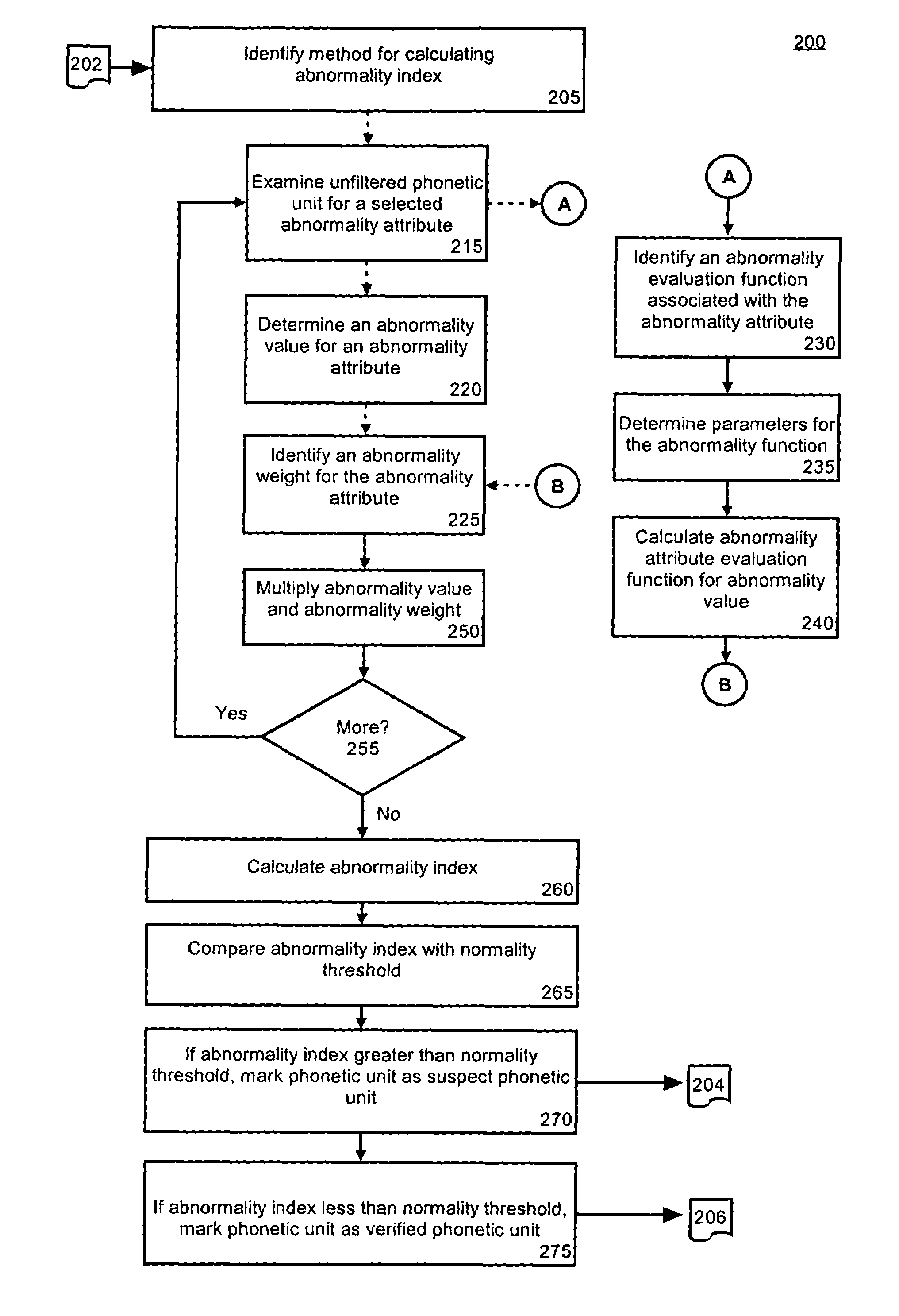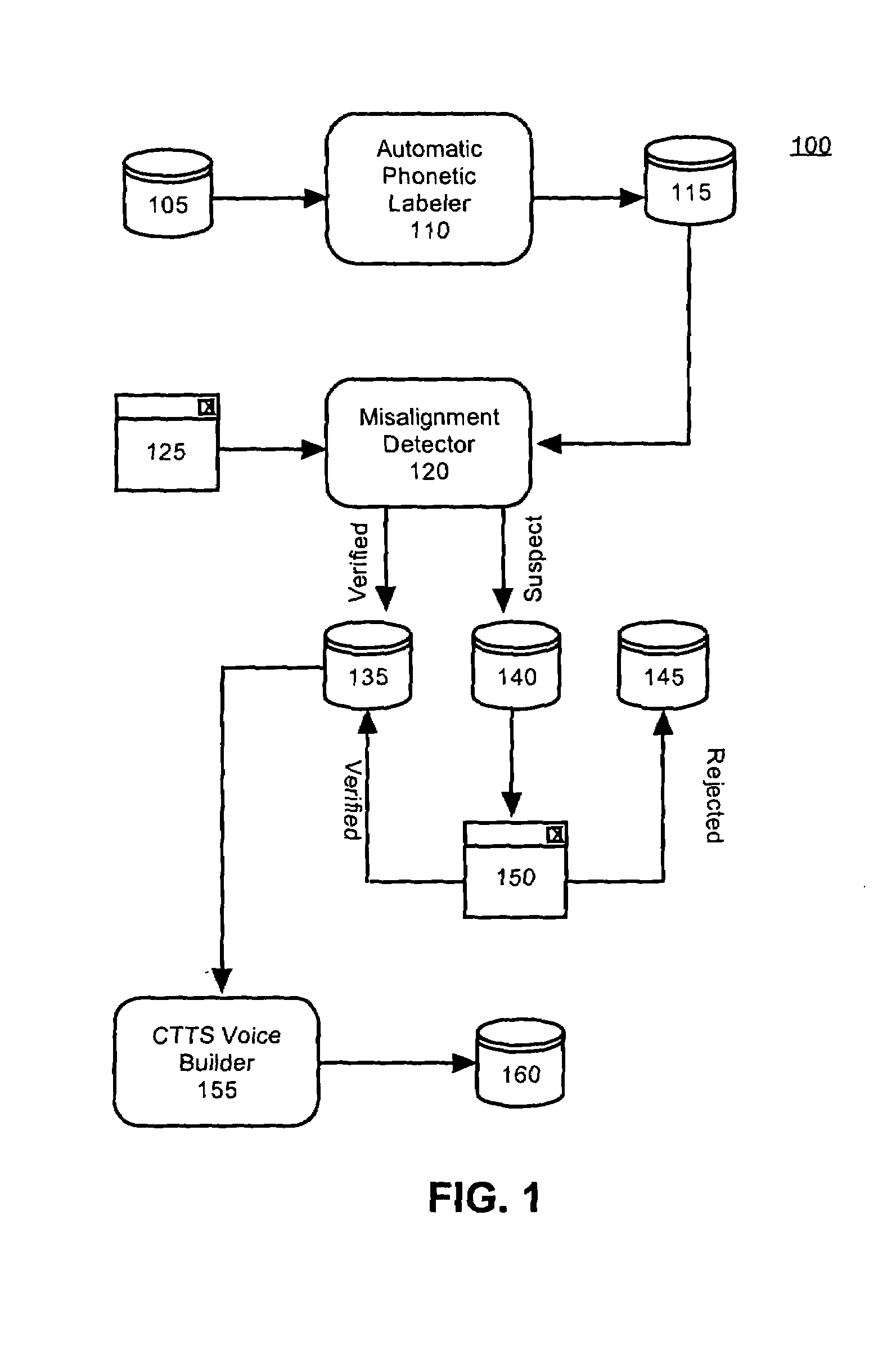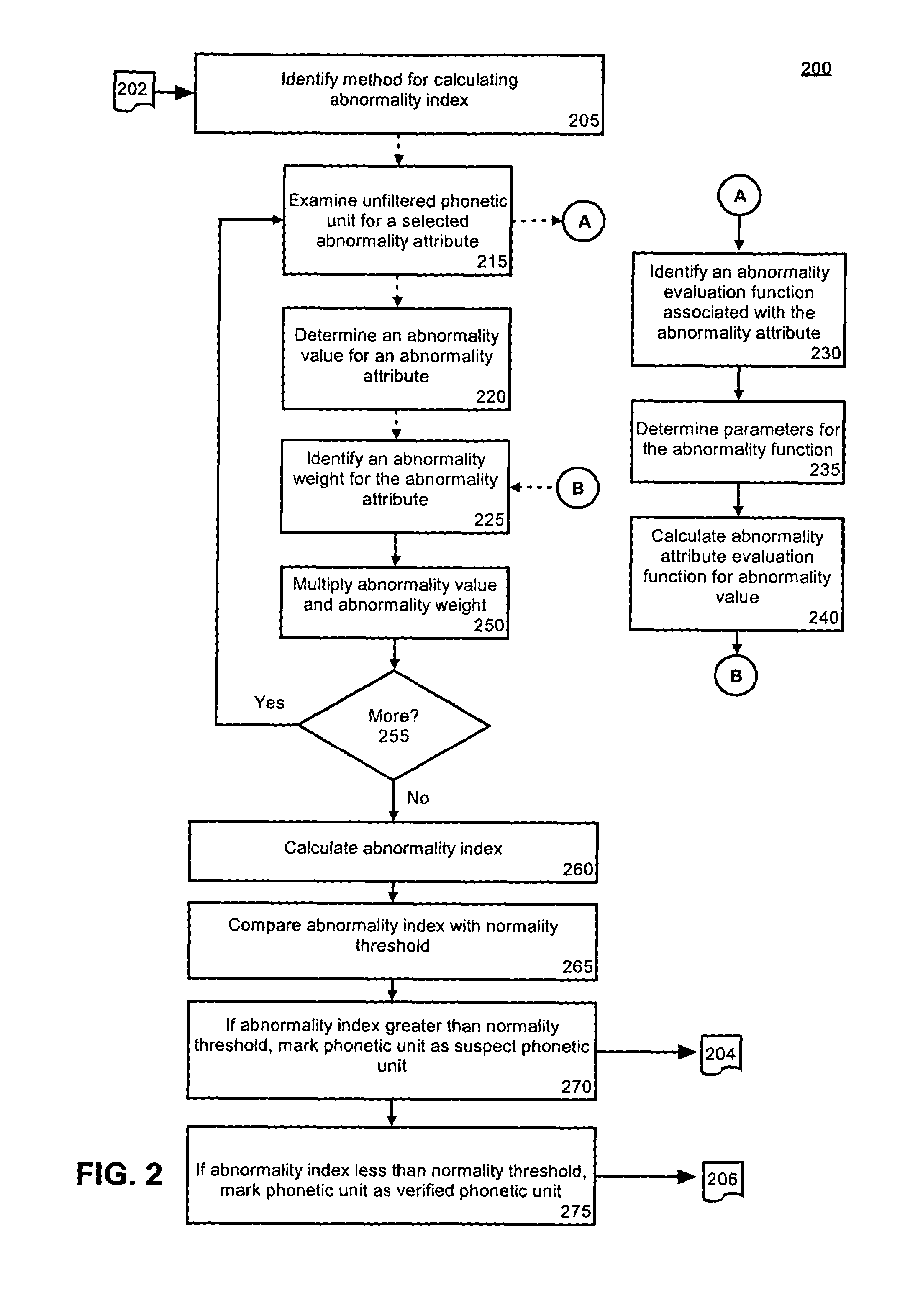Method for detecting misaligned phonetic units for a concatenative text-to-speech voice
a text-to-speech voice and phonetic unit technology, applied in the field of synthetic speech, can solve the problems of manual detection of misaligned units, duration, starting point and/or ending point is erroneously determined, and errors or misalignment of phonetic units
- Summary
- Abstract
- Description
- Claims
- Application Information
AI Technical Summary
Benefits of technology
Problems solved by technology
Method used
Image
Examples
Embodiment Construction
[0020]The invention disclosed herein provides a method, a system, and an apparatus for detecting misaligned phonetic units for use within a concatenative text-to-speech (CTTS) voice. A CTTS voice refers to a collection of phonetic units, such as phonemes, allophones, and sub-phonemes, that can be joined via CTTS technology to produce CTTS output. Since each CTTS voice can require a great multitude of phonetic units, the CTTS phonetic units are often automatically extracted from a CTTS speech corpus containing speech samples. The automatic extraction process, however, often results in misaligned phonetic units that are detected and removed from an unfiltered data store before the CTTS voice is built. The present invention enhances the efficiency with which misaligned phonetic units can be detected.
[0021]More particularly, an abnormality index indicating the likelihood of a phonetic unit being misaligned can be calculated. If this abnormality index exceeds a previously established nor...
PUM
 Login to View More
Login to View More Abstract
Description
Claims
Application Information
 Login to View More
Login to View More - R&D
- Intellectual Property
- Life Sciences
- Materials
- Tech Scout
- Unparalleled Data Quality
- Higher Quality Content
- 60% Fewer Hallucinations
Browse by: Latest US Patents, China's latest patents, Technical Efficacy Thesaurus, Application Domain, Technology Topic, Popular Technical Reports.
© 2025 PatSnap. All rights reserved.Legal|Privacy policy|Modern Slavery Act Transparency Statement|Sitemap|About US| Contact US: help@patsnap.com



